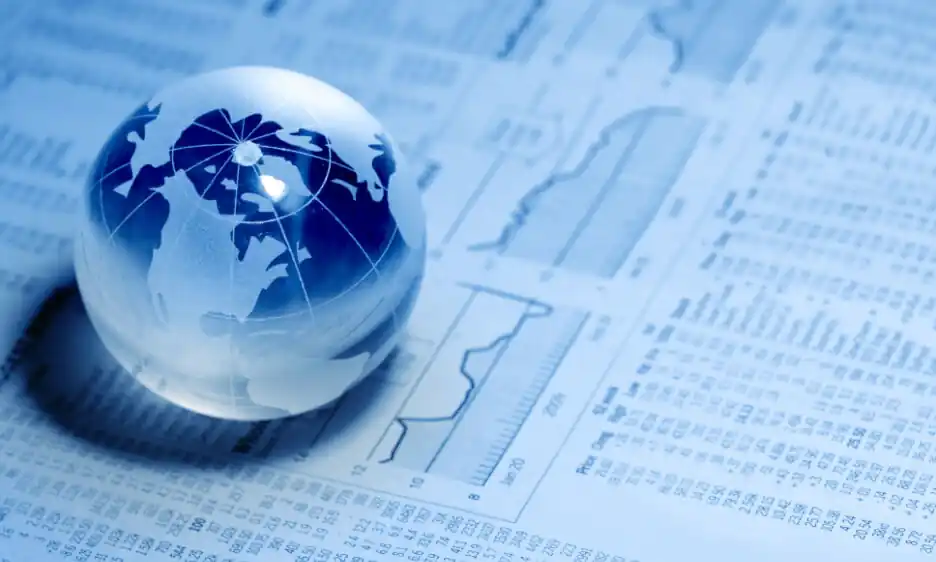Global Reporting Initiative (GRI): Setting Benchmarks for Sustainability Reporting
 Share
Share
 Copy Url
Copy Url

The terms ‘sustainability reporting’ and ‘GRI’ have gained renewed importance in the last few years. Organizations all over the world are strategizing to up their ‘sustainability game’ and come across as responsible corporate citizens. Investors and shareholders are also looking to be part of organizations that have improved sustainability performance, in line with their financial performance.
To understand why organizations are rushing to report on sustainability, we must go back in time.
Where It All Began
In 1987, the World Commission on Environment and Development set out an ambitious goal of sustainable development, describing it as ‘development which meets the needs of the present without compromising the ability of future generations to meet their own needs. Organizations play a key role in achieving this goal since they impact the economy, environment, and society positively or negatively through their businesses. There was a pressing need for a globally accepted standard using which organizations can disclose their impacts.
How did GRI come into the Picture?
While the world was debating the necessity to launch one framework that unified organizations in their sustainability reporting endeavor, the Exxon Valdez oil spill took place. In 1989, Exxon Valdez, an oil supertanker owned by Exxon Shipping Company, got into a disaster, spilling 37,000 tonnes of crude oil in the Gulf of Alaska.
In 1997, the Global Reporting Initiative (GRI) was founded in Boston following public outcry over environmental damage caused by the spill. It was launched by Coalition for Environmentally Responsible Economies (CERES), a US nonprofit organization founded to advocate for ethical and environmentally sustainable business practices. The GRI was designed to stimulate change for the organizations by allowing them to track their progress and performance alongside those of their competitors and peers who also adhere to the standards.
The GRI set up the Global Sustainability Standards Board (GSSB), vesting it with the responsibility of setting up the world's first globally accepted standards for sustainability reporting – the GRI Standards.
GRI Standards and Sustainability Reporting
The first version of the GRI Guidelines (later renamed ‘GRI Standards’) was launched in 2000, establishing the first global framework for sustainability reporting. The standards aimed to ‘provide a balanced and reasonable representation of an organization’s positive and negative contributions towards the goal of sustainable development.
In 2002, GRI launched the first update to the guidelines. As organizations realized the importance of reporting according to the GRI Standards, demand grew and the guidelines were expanded and improved, leading to further updates – G3 (2006) and G4 (2013). In 2016, GRI set up the first global standards for sustainability reporting – the GRI Standards. The Standards continue to be updated regularly, with industry- and sector-specific customizations.
The GRI Standards are divided into four broad categories, each represented by a series number:
- 100 series: These include universal standards comprising:
- GRI 101: Foundation – The starting point for using GRI Standards, consisting of Reporting Principles for defining report content and quality
- GRI 102: general Disclosures – Includes information about an organization’s profile, strategy, ethics and integrity, governance, stakeholder engagement practices, and reporting process
- FRI 103: Management Approach – Used to report information about how an organization manages a material topic
- 200 series: These include standards related to economic topics
- 300 series: These include standards related to environmental topics
- 400 series: These include standards related to social topics
GRI is also in the process of developing sector-specific standards to increase the quality, completeness, and consistency of reporting by organizations. Standards will be developed for 40 sectors, starting with those with the highest impact, such as oil and gas, agriculture, aquaculture, and fishing.
The Continuously Evolving GRI for Sustainability
In September 2020, GRI announced its collaboration with Carbon Disclosure Project (CDP), Climate Disclosure Standards Board (CDSB), International Integrated Reporting Council (IIRC), and Sustainability Accounting Standards Board (SASB). Eric Hespenheide, Chair of the GRI Board said, “As GRI, we believe strongly in a vision of a single, coherent global set of reporting standards. That is why we are pursuing collaboration with these other organizations. We have called on all of them to join in the development of a pragmatic approach to joint standard setting along with fundraising to support such an effort. This would underpin the unique contribution and specific focus of each partner organization.”
To meet the growing demand for transparency, GRI revised its Universal Standards in 2021.
In 2022, GRI announced its collaboration with the IFRS Foundation under which their respective standard-setting boards, the Global Sustainability Standards Board (GSSB) and the International Sustainability Standards Board (ISSB), will seek to coordinate their work programs and standard-setting activities.
With a growing demand for transparency in reporting and the rapidly evolving GRI, sustainability reporting using the GRI Standards has become the norm. It is the only way of ensuring that reporting is trusted, credible, and relevant to stakeholders, and marks a clear link between financial and non-financial information.
A good Sustainability Report is one that honestly discloses an organization’s impacts while stating the strategy to increase the positive impacts and mitigate the negative ones. To get your Sustainability Report in accordance with the GRI Standards, get in touch with our experts at Report Yak.
Related Posts
-
How Extended Producer Responsibility in India Impacts Reporting
circular economyenvironmental and social initiatives
+9
Oct 15, 2024Share
Copy Url
The Importance of Closed Loop Systems in Sustainability Reporting
Annual Report designAnnual reports
+8
Oct 4, 2024Share
Copy Url
Circular Economy Approach to Plastic Waste for Sustainability
Sep 25, 2024Share
Copy Url


